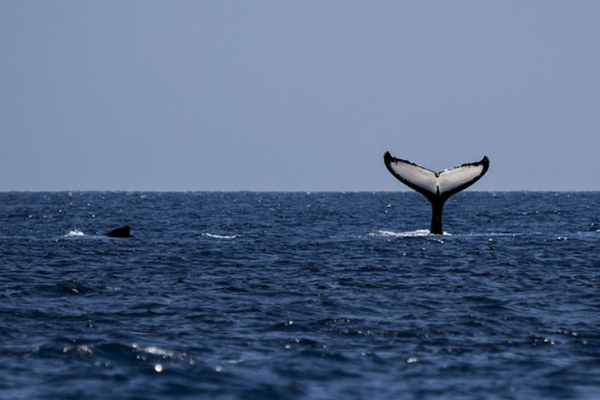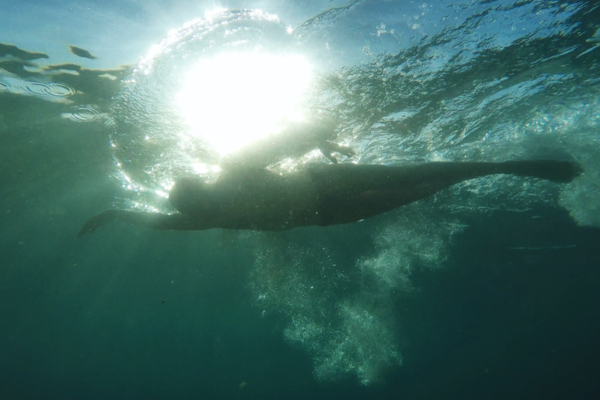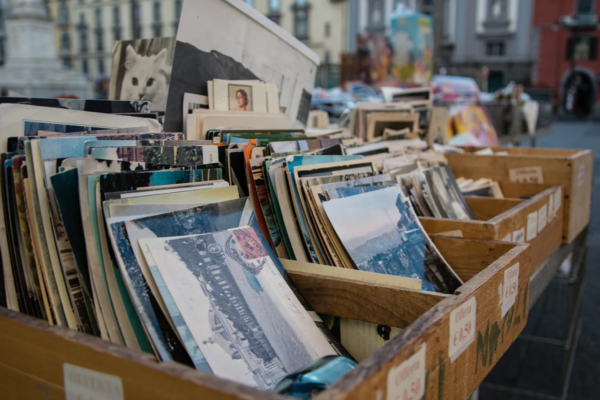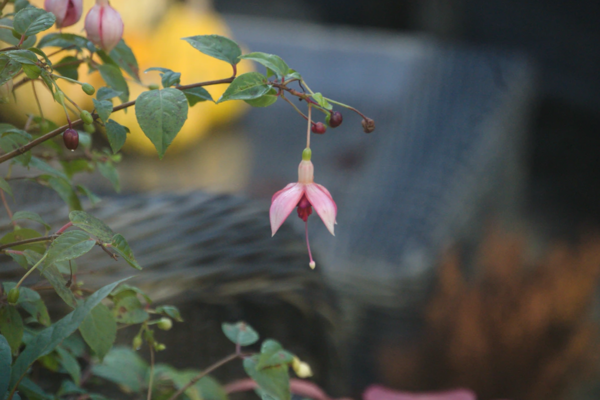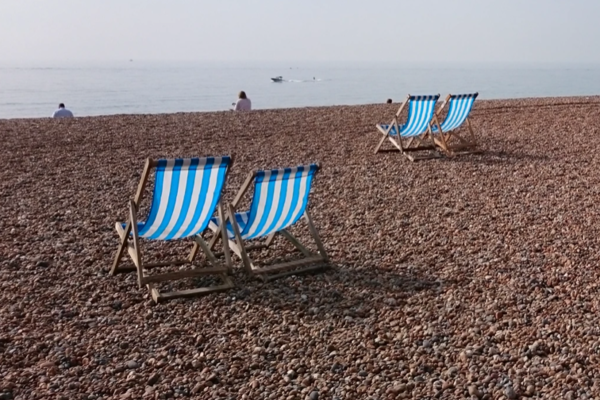Nothing in Vain
1 week in. I am not in lockdown, nor am I in quarantine; I'm still going to work as normal. Admittedly it wasn’t previously normal to get stopped by the police every other day. Today it's a very young Garda. He squints from 2 meters at my permission letter, though the organisation’s letterhead and the words ESSENTIAL WORKER are printed large enough to be seen from the next county, never mind 2 meters. Unexpectedly - unexpected because he is very young and not from "down the country" - he looks me in the eye and says "God bless you" - quite seriously and with an eye crinkle of fellow feeling. I respond, involuntarily, though I really mean it: "and also with you" - just because I haven't gone to Mass in almost 40 years doesn't mean the call and response reflex no longer exists, apparently. The faith I'd been taught to possess responds like a phantom limb. We smile ruefully at each other, and suddenly he looks like a very tired child. He adjusts his slightly too big hat self-consciously then smiles, a wide, genuine “oops! busted!” smile. I suddenly want to hug him, tell him it's ok, nobody feels equal to this. We're all faking it really. But it'll all be over soon. (ish)
I arrive at work - I keep forgetting the lift is locked, because our office is the only one still operating. I walk up the 4 flights, my footsteps setting off an unsettling staccato echo, as if someone were also coming up the stairs exactly in step with me. Everything looks very clean, somewhat ironically.
We can no longer have face-to-face consultations, so I've been re-deployed to work on the national phone service. On the phone I listen to the troubles which come with the dramatically changed lives of others, the fears of others, the problems of others. My life hasn't really changed - I'm still working, for one thing. I'm fit and well. I don't have a serious underlying condition. Everyone I love is still healthy, still alive. I swallow down the occasional wave of guilt which rises from the pit of my stomach. "You're really on the frontline" people tell me, on a daily basis. But I'm not, I'm sitting exactly where I have been sitting for the last several years, but now protected within the carapace of a shuttered on the inside, swipe - card - entrance - only building. I'm not risking my life.
2 weeks in: "Please call the Employee Assistance Program if you are struggling." This email comes in at intervals. Unlike many employers I have been hearing about, my organisation is very protective of us. The regional manager sends genuinely grateful emails to us all, which we all appreciate - probably more than she realises. On some difficult days I think about calling the EAP but really, nothing is wrong. My work is mentally challenging and can be difficult emotionally, but it was always so. This is just a different kind of difficult; there is a consensus on that amongst my colleagues. There is also an unofficial, pitch - black gallows humour WhatsApp group composed of my now scattered close colleagues. It gallops along epileptically all day, every day - and we all find it immensely comforting.
3 weeks in: The calls are still flooding in. People's problems are still there, or there are more problems, or different problems. This week I begin to hear of unexpected, unprovisioned deaths, of now unmanageable funeral expenses. I talk carefully and calmly with a woman who lost her father, her mother and her uncle on the same day. She is terribly anxious that they won't be buried because she hasn't enough money to pay for all the funerals. I tell her how to apply for an exceptional need payment. She has never applied for a social welfare payment. I tell her I will post the form out to her, with a note on how to fill it in. I tell her it will be ok - the words tumble out of my mouth - with a sudden lapse of my carefulness - at the exact moment I think: for Christ's sake don't tell her it will be ok, that'd be a stupid thing to say to a woman who has just lost so much. She pauses and I think she's going to say exactly that. She begins to cry, a sudden dam-burst torrent of grief and gratitude. You're so good, she says. You've been so kind. I feel glad she thinks that but I don't think I have helped her, not in any meaningful way really. That was the only time I cried after a call. So far.
I hear of domestic violence, of intestacy, of un-witnessed wills, of every possible combination of seemingly unlikely but actually lawful applications of provisions and also of incredible, heinously unlawful employer dealings, of exploitation, of uncertainty, uncertainty, uncertainty. The situation is evolving very rapidly at the moment, I say, with nauseating regularity. It’s the truth though, and they don’t – can’t – know the half of it. A caller thanks me for my help, then tells me I have a wonderful voice and gives me the number of her voicework agency. It’s all getting really surreal now. I briefly wonder if I actually died weeks ago, and my now non-corporeal existence is some Dantesque journey to my eternal domain. I also briefly consider a change of career, perhaps as the disembodied voice warning people not to fall between the train and the platform.
I take more calls. I can only give information, or advice or refer to more issue - specific organisations. I can't encouragingly pat people’s shoulder as they leave the consultation or receive grateful hugs that we're not technically supposed to allow, but always do. I can't hold their despairing gaze. I can't smile, I can't say "try not to worry" with my face. I feel reduced to an endlessly reacting brain attached to eyes and ears. I realise how much I have relied upon reading people's bodies, how much quiet truth emerged from just a glance, a hand gesture, a nod. All my training in de-escalating incipient anger through reading body language is completely irrelevant now, but I seem to still be able to manage it on the phone, though I'm not quite sure how. I’ve never had difficulty dealing with a client if they’ve become irrationally angry with me, but this is different. I know they are angry in lieu of being scared, shouting instead of crying. Sometimes people tell me they feel helpless, they want to help but don’t know how. I want to tell them I am apparently helping, but still feel helpless. I think we all feel it. I suggest organisations who are still working with volunteers.
The rhythm of my work has gone completely, and yet, a new rhythm is emerging. When the calls began, they came in every 12 seconds, now they’re every 19 seconds. Occasionally I hit "away from desk" and stretch my legs up on to the roof, just me and the narky seagulls and the Bournemouth Sinfonietta’s version of Arvo Pärt’s “Silentium” unfurling delicately into my ears. Only recently I recollected in a letter to someone that a long time ago I listened to this while crossing a completely fog - bound estuary on a train and watched as a huge flock of birds emerged from the fog, like ink dropped into water, then solidifying into scattered black dots - stark against the perfect whiteness. They looked like an airborne music score. I felt changed by seeing that in a way I still can’t describe. I feel changed now, in a way I doubt I will ever be able to describe. If I only have a ten minute break, I listen to the 8 minutes, 32 seconds which comprises the entirety of Philip Glass’s “Violin Concerto II.” It’s so tenderly beautiful and instils such quietude in me that I can almost feel the earth spinning through space.
5 weeks in and now there can be 2- 3 minutes between calls, so there is a tentative feeling of things having begun to settle – at least until something else changes. I now have a little time to think about how to prepare for the next call, though it is a weird, arranging deck chairs on the Titanic sort of feeling, since I never know what is coming next. The software says "incoming call" and I just pick it up. There is one question I get asked all the time: what are my rights? Normally I can tell them exactly what is laid down in law. This being "the new normal" (Lord, how I loathe - and disbelieve - that expression) I don't now have the same degree of certainty. Well, in relation to your rights: for the moment all bets are off, I want to say, but don't. I explain how various pieces of legislation have been temporarily amended by the Emergency Measures Act. But there is certainly some very creative interpretation going on, I want to say, but don't.
I take more calls. I always have an eye on my emails too, as we are sent updates to legislative provisions, to the new rules, to the amendments to the new rules. Sometimes there are brand new rules, which are different from the new rules which came out earlier in the week. I notice how information has become virus-like, spreading and spreading, mutating as it goes. Legal arguments ping back and forth. Is it an infringement of the civil rights of an individual to not be able to request their files under the Freedom of Information Act? No, says one person, the time limit: acknowledge within 2 weeks, respond by 4 weeks cannot now apply. But the legislation hasn't been amended by the Emergency Measures Act, says another. Oh God, I think you’re right actually, says someone else. And the discussion rumbles on, like distant thunder.
There are serious and troubling discussions about how we will carry out effective instructive advocacy with our offices closed, and representative advocacy at hearings - suddenly the timeframe seems to have jumped to months instead of weeks. This makes us all uneasy. There are so many potentially insoluble problems with the suggested alternative methods. Our organisation also provides a news article digest by email twice a day, which I love beyond words, because it means I just get the relevant stuff and don't have to read a load of guff about what the leaders of countries are blathering on about. It also means I don't have to listen to the news when I get home.
At home - to my dismay - I discovered I can’t read much since this all began, partly through lack of focus and partly through plain exhaustion. Sometimes I read the same 5 sentences over and over, think “huh?” and then wake up later with the book stuck to my face or in various locations around the bed, or placed by my wife on the table by my side of the bed. Sometimes I wake myself up, sure that I’ve been talking in my sleep. Possibly I have become involuntarily capable of astral projection and have become a ghostly advocate in another part of the world. Perhaps there are, even now, stories springing up – more calls are answered than there is staff to answer them and it’s all very mysterious.
Sometimes, instead of reading, I play fretless bass, hesitantly, trying to learn new things to keep that part of my mind in tune. Sometimes I tap out the rhythm on my thighs, encoding it into my body. Sometimes that makes me think how much I miss touching my friends, how we transmit our inner meaning into each other’s bodies with a touch, or a hug; conveying emotions for which language is inadequate. I miss the distinctive woody smell of my oldest friend’s house. I hope we will be able to celebrate 40 years of friendship this coming September, and we are still hopeful we may be able to have our annual 4 person solstice gathering. The current information is that - shortly - 4 people will be able to gather outside – which will be nice timing, as long as the word “shortly” hasn’t now taken on a whole new meaning.
Occasionally I go out – fortunately just inside the dictated 2km zone - and sit beside my father’s grave, because the cemetery in which he is buried is quiet and beautiful, situated on top of a hill with woodland on one side and on the other, the entire town spread out below. I can see the 2 church steeples, the windmill - sometimes I can see the smudgy outline of the monastic ruins on one of the islands. I see the lighthouse, five miles out to sea. Sometimes, in a certain cloud-light it appears much closer, seeming to be suspended just beyond my reach. I look at the sea, constant despite her various moods; all these ageless things.
"Everything is just mad, altogether" people say. (These are Irish people, admittedly) Sometimes I agree. Sometimes I sit there in the cemetery, quietly mulling over thoughts that started forming earlier this year as I was reading a book about seasonality, time and place. It occurred to me that we are creatures built for seasons, for cycles, and that these never truly end, they just change state. There is an almost palpable pause between seasons, a feeling of hinge-points being reached before we tip into another phase. Pause is inherent in our corporeal selves, too - the pause before we take our very first independent breath, the lengthening pause between breaths as we pass from life to death; the normal - actually essential - pause between our heartbeats. To pause is natural. Not to be overly stoical, but even this virus, brutal as it is, is natural. Has nature caused an essential pause when it became necessary? I think it's possible.
In my work I am bound to ensure the principles of natural law prevail. I feel now, more than ever, that I should apply the same principles to my life. Perhaps this change will redefine the way we see each other, the care with which we touch each other, make love with each other, read each other, show love and regard for each other, and the way we care for others and ourselves. I can’t really see this as a bad thing, however frightening and painful it might be in the short term.
I continue to sit in the cemetery and think of my father, gone since I was 13 years old. He was a good Latinist, mostly because it had been beaten into him in school, but in retrospect I think he did appreciate the economy of the language. “Natura nihil frustra facit” he would occasionally say to me with mock ponderous solemnity, his hands clasped behind his back in what I am sure was a good impression of his pompous Christian Brother Latin master. “Natura nihil frustra facit” : nature does nothing in vain.
At home, I reach for my father’s 1936 copy of a Golden Treasury of Songs and Lyrics, having realised in recent days that I can manage to concentrate on poetry more easily than on prose. Beside this book is my father’s school text book of Latin aphorisms. I reach for that instead. It’s not in great shape now and falls open limply across my hands, with an almost audible sigh. I look down and see on the top of the facing page: Tempora mutantur, nos et mutamur in illis: times are changed; we, too are changed within them. Directly beneath that: Dum spiro spero: while I breathe, I hope.
I smile and put the book back on the shelf, grateful for my father’s posthumous Latin – and life – lesson.
Trish Halligan is an Irish Rights Advocate and has never submitted anything for publication before. She Tweets @trishhalligan




